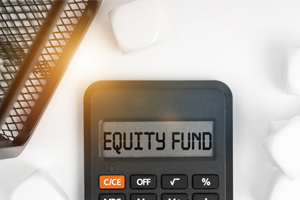The Indian equity market has been on a roller coaster ride of late, with returns ranging from stellar highs to dismal lows. In this scenario, investing in some of the best equity mutual funds, through a systematic investment plan (SIP), would be a compelling option, since it would enable you to benefit from both rupee cost averaging and compounding. In a scenario like the one we have been experiencing, investing in equity funds via SIP would ensure that your money can purchase more units during market lows, making your investment more valuable during market upswings. Further, you would also be able to ride out the volatility through a disciplined investment approach capable of offering you potentially desired returns over the longer term. If you are wondering how to choose best equity mutual fund, here is the answer to this important question. Following are the factors to look out for while picking the best performing equity funds or choosing the top equity mutual funds.
Personal investment profile
The first and foremost aspect to consider, while zeroing in on the best equity mutual funds, is knowing your personal investor profile, which includes factors such as your risk appetite, return requirement, financial goals and time horizon. For instance, if you are a comparatively low risk investor keen on market-aligned returns and a long-term horizon, then passive equity funds can be an excellent option for you. Alternatively, if you are keen on market-beating returns and believe in the potential inherent in the pharmaceutical sector, you can invest in an actively managed pharma fund backed by some of the top asset management companies in the business. Please remember that the best equity mutual funds are subjective, since they depend on your requirements and preferences. However, once you assess your investor profile, you should consider the following features to pick the best equity fund.
Fund performance and track record
Once you have your investor profile prepared, make a list of the top funds you are interested in. Then, consider the funds’ historical performance and look for schemes that have consistently outperformed their benchmark index and peers over various timeframes, such as 1-year, 3-year, 5-year, and 10-year periods. Pick funds with a track record of generating stable returns and exhibiting resilience during market downturns to ensure a winsome choice. Also look at the size of the fund's asset under management but remember that a large AUM can indicate the fund's popularity but also pose challenges in terms of maintaining flexibility and generating substantial returns. Smaller funds may have more flexibility to invest in opportunities that larger funds might not be able to access. Strike a balance between the fund's AUM and its performance track record.
Fund manager expertise and stability
The fund manager plays a major role in the success of an equity mutual fund so always research the experience, expertise, and track record of your scheme’s manager. Look for someone who exhibits a deep understanding of the market, a disciplined investment approach, and a consistent investment strategy. Additionally, stability in fund management is essential, as frequent changes in fund managers can impact the fund's performance so choose options which have indicated stability over a period of time.
Investment philosophy and style
When you look at the list of top equity funds, you will notice that each fund follows a specific investment philosophy and style. For instance, some schemes may focus on large-cap stocks, while others would specialise in mid-cap or small-cap stocks. Understand the investment philosophy of the fund and ensure it aligns with your investment objectives and risk appetite. It is advisable to diversify across different investment styles and market capitalisations to reduce risk and enhance the potential for returns. Alongside, you should also analyse the fund's investment holdings and sector allocation while choosing the best scheme. A well-diversified fund should have a balanced portfolio across different sectors and industries to ensure the best outcomes.
Fund expenses and fees
Consider the expense ratio and fees associated with the mutual fund. The term expense ratio refers to the annual cost of managing the fund and this cost gets deducted from the fund's assets, which include your investment. Accordingly, choosing schemes with lower expense ratios can significantly impact your long-term returns. Compare the expense ratios of similar funds to ensure you are not paying excessive fees that could eat into your overall returns. If you are keen on a lower expense ratio, then passive equity funds can help you achieve your goals without corroding your returns.
Dividend details
Many of you may be keen on earning a regular income through dividends. If this is the case, consider the fund's track record of dividend distribution by evaluating the consistency and growth of dividends over time.
Risk management and volatility
Finally, once you whittle down your list to a few best equity mutual funds which meet your requirements, remember to assess the schemes’ risk management practices and ability to control downside risk. Look for funds that have demonstrated an ability to manage volatility and protect capital during market downturns as these will keep you protected in stressful market scenarios.
As you have seen, choosing the best equity mutual fund requires careful consideration of various factors and it is essential to align these with your investment goals, risk appetite, and time horizon. However, once you find the schemes that work for you, it can potentially help you realise your long-term goals.
An investor education initiative by Edelweiss Mutual Fund
All Mutual Fund Investors have to go through a one-time KYC process. Investors should deal only with Registered Mutual Fund (RMF). For more info on KYC, RMF and procedure to lodge/redress any complaints, visit - https://www.edelweissmf.com/kyc-norms
MUTUAL FUND INVESTMENTS ARE SUBJECT TO MARKET RISKS. READ ALL SCHEME RELATED DOCUMENTS CAREFULLY
Trending Articles
MUTUAL FUND INVESTMENTS ARE SUBJECT TO MARKET RISKS, READ ALL SCHEME RELATED DOCUMENTS CAREFULLY.




















